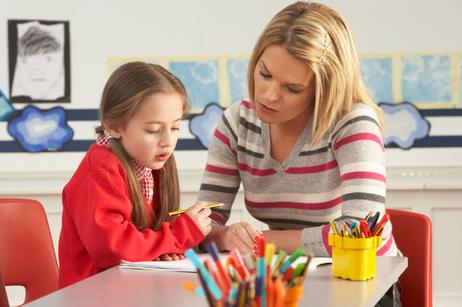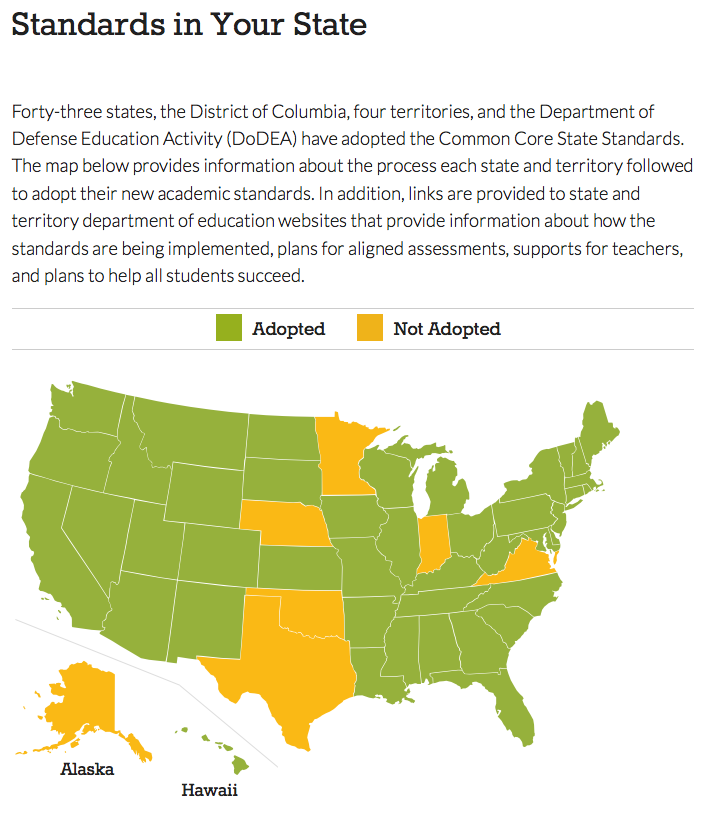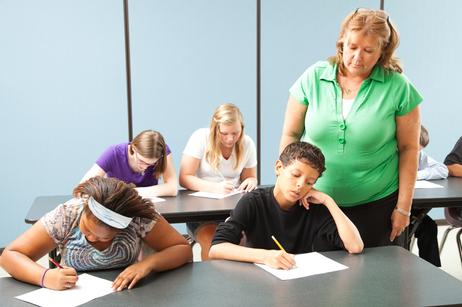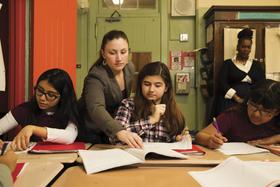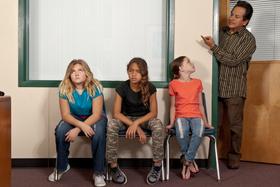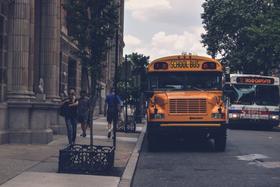It is a story that is all too often in the news: A child is subjected to torturous cyberbullying by his or her peers via social media. Threatening messages sent on Facebook, humiliating comments about their appearance on Twitter, and other such nonsense drives the student to lash out, possibly hurting themselves, their peers, or both.
Schools no doubt serve a protective function and are charged with ensuring students have access to a free, appropriate education in an environment that is safe, secure, and nurturing. To help achieve that end, some states are taking strong measures to bolster the authority and power of school districts with regard to investigating instances of bullying, even if such negative behaviors do not occur on school property or within the bounds of the school day.
The Illinois Law
In an attempt to curb cyberbullying behaviors, the Illinois General Assembly passed a law, enacted January 1st of this year, that allows public school districts to demand access to students’ personal social media accounts if the student is suspected of violating school rules.
A letter sent home to parents in Triad Community Schools in Illinois, obtained by Motherboard, outlines the new policy:
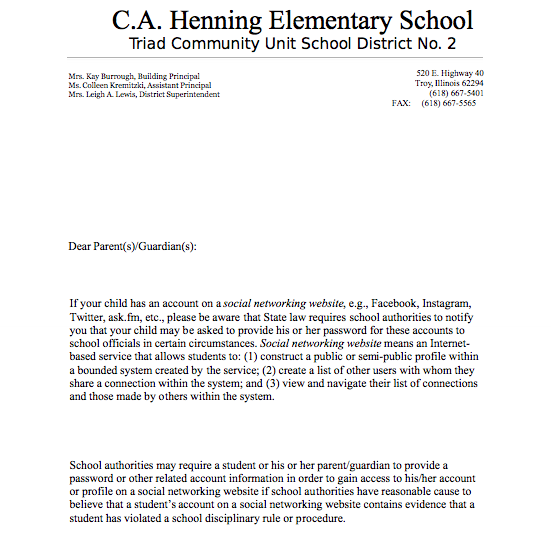
“School authorities may require a student or his or her parent/guardian to provide a password or other related account information in order to gain access to his/her account profile on a social networking website if school authorities have reasonable cause to believe



